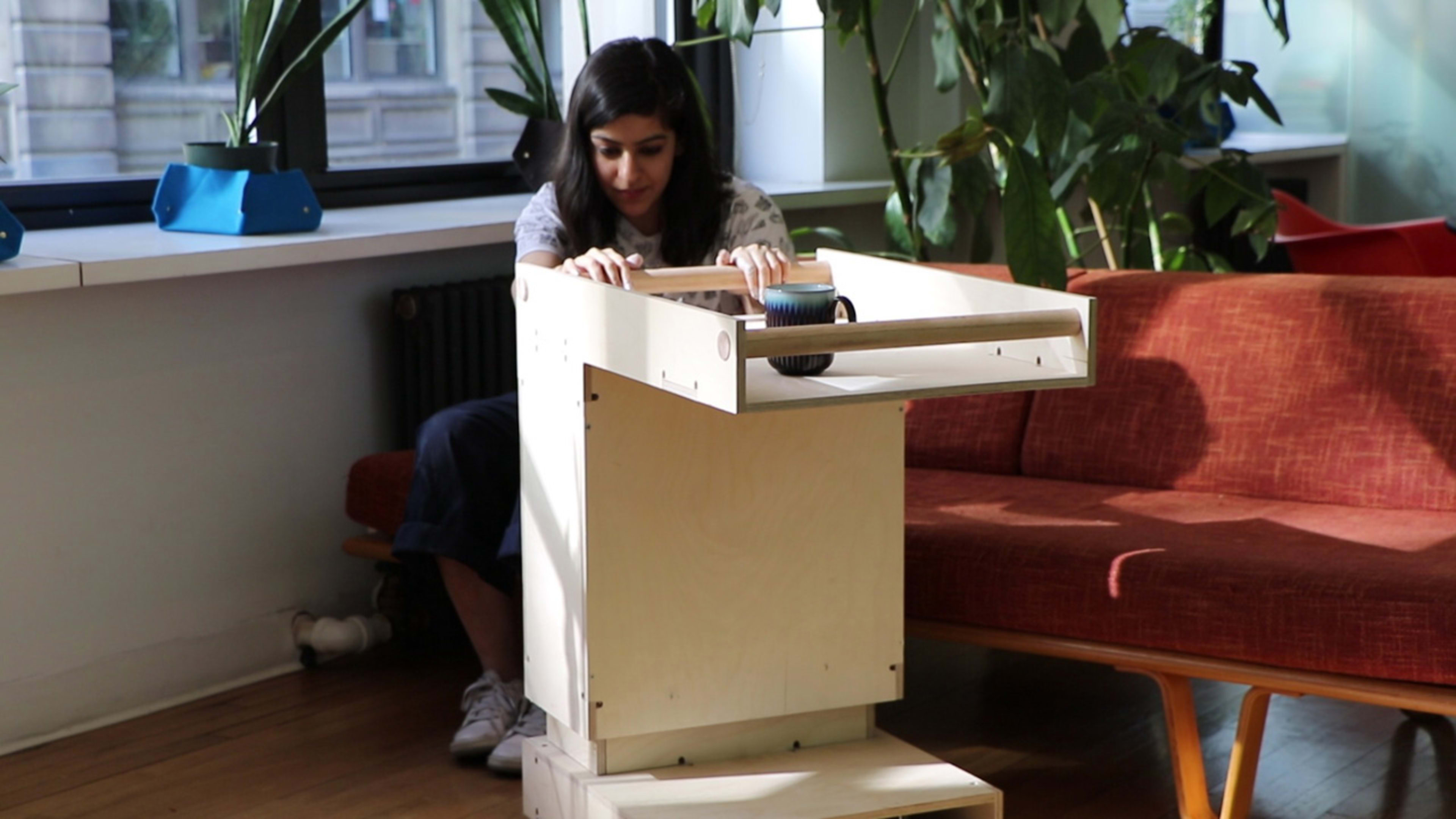Life hacks aren’t just for the productivity-obsessed. They’re a necessary part of life for differently abled people navigating a world that was not designed for everyone.
Lebanese industrial designer Nour Malaeb‘s best friend has muscular dystrophy, and when the two lived together, Malaeb watched him struggle through everyday tasks like getting up from the couch or carrying coffee from the kitchen. To accomplish these things on his own, his friend would do things like fill a mug up only halfway so it wouldn’t spill–a simple trick that helped him move around a space that wasn’t designed for him.
[Image: courtesy Nour Malaeb]
These are the kind of daily adjustments that people with physical disabilities must make, when so much of our world doesn’t accommodate people of all types of abilities. So when Malaeb was working on his master’s thesis project at the School of Visual Arts in New York City, he began to wonder: What if he could design furniture that would do the work for his friend? If he couldn’t reach his coffee, could the table simply bring it to him?
Inspired by research coming out of MIT that focused on robotic furniture, Malaeb began designing a voice-controlled furniture robot that could move around a living space autonomously. The resulting prototype, called Relay, not only responds to your voice, it also can change its height, moving up and down based on what the user needs. Part table and part ottoman, it’s a multi-purpose piece of furniture that could be customized by each user.
[Image: courtesy Nour Malaeb]
Malaeb’s ultimate vision for Relay goes much further, though. During the design process, he spoke with people at the Brooklyn Center for Independence of the Disabled to get input from potential users on what they’d like to see in their furniture. One woman wanted a smart walker that could also double as a side table. Another, who’s a wheelchair user and lives alone, is afraid of falling and not being able to get back up–she told Malaeb she wants a “picker-upper.” Eventually, Malaeb hopes to be able to build custom pieces of robotic furniture to users’ specifications.
Malaeb envisions a piece of furniture that could even help someone get up off the couch or get back into a wheelchair after falling, even if his prototype isn’t that advanced yet.
[Image: courtesy Nour Malaeb]
For now, the prototype is a very rough vision of what Relay could be. After hearing about how expensive service dogs are–one current solution to helping disabled people get around–Malaeb hopes to create furniture that is FDA-approved, which would allow people to use insurance money to buy it. He imagines finding a way to add mechanical parts to existing affordable furniture, too, so that any old Ikea table could become robotic.
Perhaps one day, all of us will have furniture that adapts to what we need at that moment, whether that means a rolling work desk or a coffee table that springs to life when you call.
Recognize your brand’s excellence by applying to this year’s Brands That Matter Awards before the early-rate deadline, May 3.
